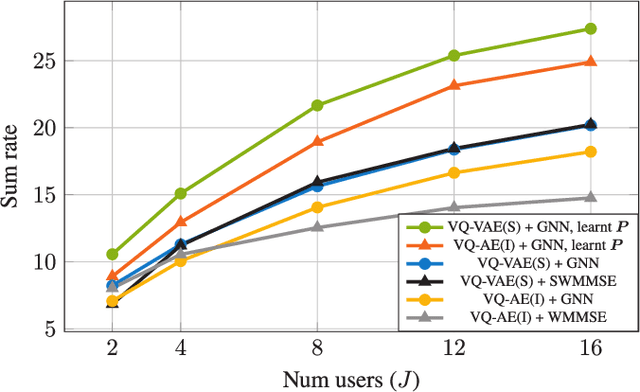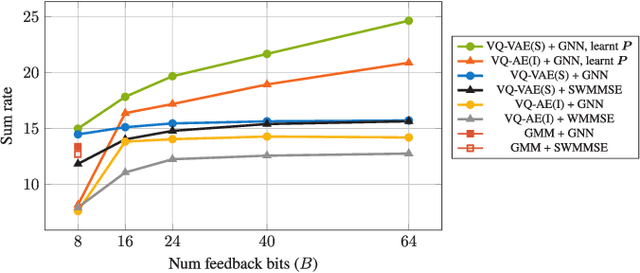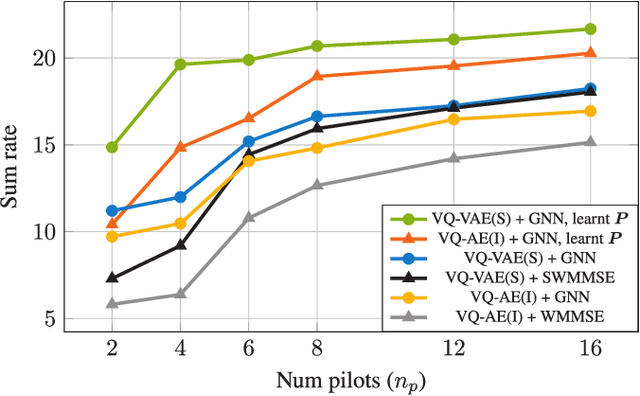Precoder Design in Multi-User FDD Systems with VQ-VAE and GNN
Paper and Code
Oct 10, 2025



Robust precoding is efficiently feasible in frequency division duplex (FDD) systems by incorporating the learnt statistics of the propagation environment through a generative model. We build on previous work that successfully designed site-specific precoders based on a combination of Gaussian mixture models (GMMs) and graph neural networks (GNNs). In this paper, by utilizing a vector quantized-variational autoencoder (VQ-VAE), we circumvent one of the key drawbacks of GMMs, i.e., the number of GMM components scales exponentially to the feedback bits. In addition, the deep learning architecture of the VQ-VAE allows us to jointly train the GNN together with VQ-VAE along with pilot optimization forming an end-to-end (E2E) model, resulting in considerable performance gains in sum rate for multi-user wireless systems. Simulations demonstrate the superiority of the proposed frameworks over the conventional methods involving the sub-discrete Fourier transform (DFT) pilot matrix and iterative precoder algorithms enabling the deployment of systems characterized by fewer pilots or feedback bits.
 Add to Chrome
Add to Chrome Add to Firefox
Add to Firefox Add to Edge
Add to Edge